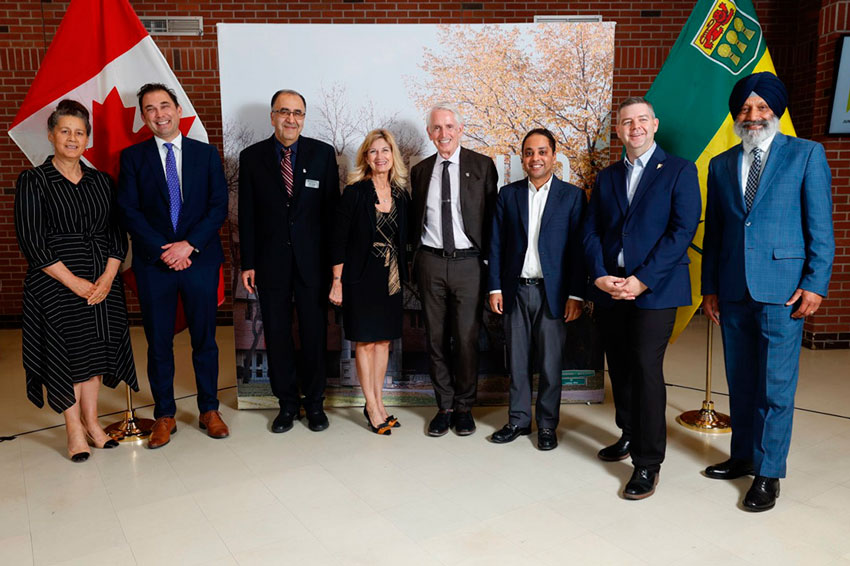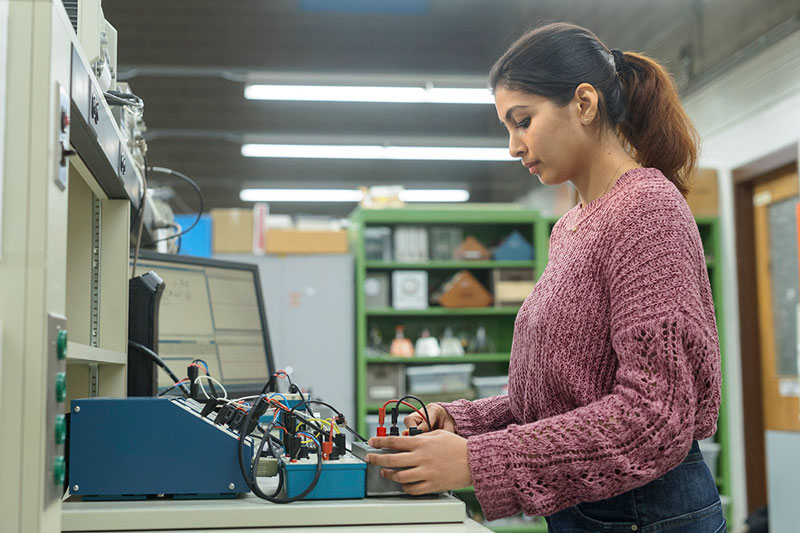
Siemens gift helps USask develop local talent in electronic chip design
The University of Saskatchewan (USask) has received a significant gift from Siemens to create a tenured professor chair in the USask College of Engineering for research and teaching that develops local talent in the large, fast-growing industry of electronic design automation (EDA).
EDA software is used to create electronic chips, which are used in almost all modern electronic devices. Siemens’ EDA software is used by the world’s largest technology companies to make better performing, higher quality electronic chips more quickly. Their Saskatoon office is a centre of excellence for research, development and customer applications, that employs engineers and computer scientists.
The Siemens EDA Chair, based in the Department of Electrical and Computer Engineering, will develop and teach undergraduate and graduate courses in EDA. The chair will also supervise and mentor undergraduate research interns, master’s and PhD students, as well as visiting students and post-doctoral fellows. This will significantly advance the research and talent available in Saskatchewan to support Siemens’ growth locally.
Siemens expanded its global footprint to Saskatoon after it acquired Solido Design Automation in 2017. Solido was founded in 2005 by Amit Gupta, who graduated from USask in 1999 with degrees in both electrical engineering and computer science. Gupta is now vice-president and general manager of Custom IC Verification at Siemens EDA and leads Solido’s artificial intelligence-powered products within the company.
“I am excited that Siemens is giving this gift to USask for the creation of the Siemens EDA Chair,” said Gupta. “The chair will advance EDA research and expertise of undergraduate and graduate students at USask that is critical in building the next generation of electronic devices. This will have a major impact on Saskatchewan’s technology sector.”
“The Siemens EDA Chair will greatly strengthen USask’s momentum in the development of electronic systems by providing engineers and computer scientists with the necessary skills to develop advanced software tools that design, simulate, and validate complex chips efficiently and accurately,” said Baljit Singh, vice-president research, USask.
"This investment in USask research signals potential to create opportunities for continued growth in groundbreaking research, nurturing interdisciplinary collaborations, and cultivating the next generation of engineers and computer scientists in Saskatchewan,” he said.
“USask Engineering welcomes the gift, as it supports the college’s commitment to equipping its graduates with the skills needed by industry so they can Be What the World Needs,” said Carey Simonson, interim dean of the College of Engineering.
“Our talented USask Engineering graduates have a track record of leading and working on projects that grow the province’s economy,” he said. “The Siemens EDA Chair will strengthen that impact by educating and training electrical and computer engineers in this fast-growing sector, which will help meet the goal of tripling the growth of the province’s technology sector by 2030, as stated in the Saskatchewan Growth Plan.”

About USask Engineering: The University of Saskatchewan College of Engineering is located in Saskatoon on Treaty 6 territory and the traditional homeland of the Métis. It is part of a research-intensive university, educating and training highly sought-after engineers who deliver on growth projects in the agricultural, energy, environmental, health, infrastructure, manufacturing, mining, technology, and transportation sectors.
The college is home to 2,200 students from around the world; it awards 400 degrees annually. There are 7,000 USask Engineers working in Saskatchewan and since 2015, eight of 10 grads have chosen to build their careers in Saskatchewan. They are engineers the world needs, recognized for their technical skill, leadership and resourceful problem-solving.
Together, we will undertake the research the world needs. We invite you to join by supporting critical research at USask.

